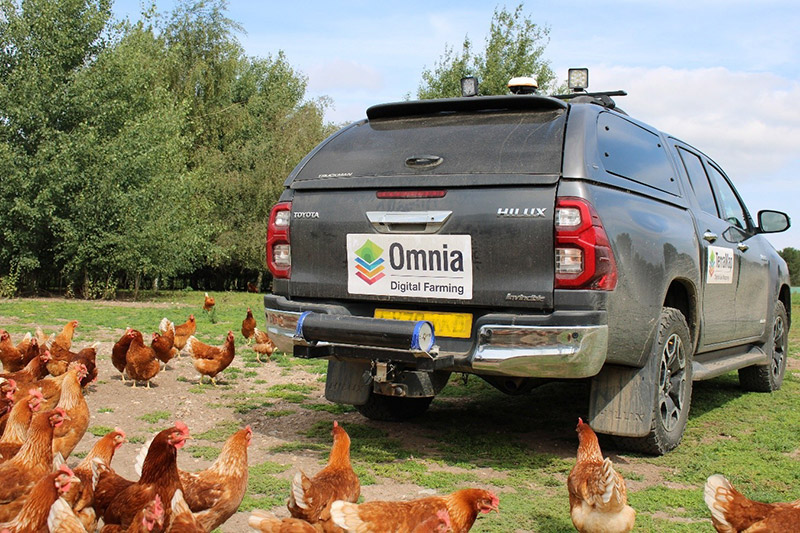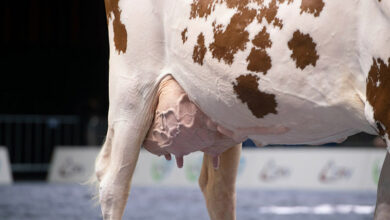New soil mapping technology helps reduce carbon emissions

Soil mapping technology is to be used for the first time in the UK egg sector by Noble Foods, the UK’s leading supplier of fresh eggs and a major poultry company.
Noble Foods is implementing TerraMap, a pioneering technology, on one of its organic egg farms as part of its commitment to reduce carbon emissions.
Developed by crop production specialists Hutchinsons, TerraMap uses passive gamma-ray detection to scan fields and generate high resolution maps of up to 48 soil properties, at an industry-leading 800 sample points per hectare.

TerraMap, a pioneering technology, includes TerraMap Carbon, the first carbon mapping service to accurately measure organic carbon in the soil. Photo: Noble Foods
Depending on the business’s needs, TerraMap offers 6 service levels with up to 48 layers of soil data including carbon, designed to suit different budgets and requirements. The standard offer maps phosphorus, potassium and magnesium, pH, soil texture and elevation, and meets the requirements for Farming Rules for Water.
Precision land management
This precise data provides Noble Foods with an unprecedented level of insight into soil health, enabling more precise land management.
Emily Marshall, agriculture sustainability and customer manager at Noble Foods, said she was very excited by the product: “Our soils are the cornerstone of our on-farm sustainability efforts; they have the ability to influence every aspect of our sustainability strategy spanning water, carbon and nature. TerraMap gives us a level of insight into the health of our soils that we’ve never had before. By understanding what’s happening beneath our feet we can make smarter decisions that benefit both the hens and the environment.”
Carbon mapping
The technology also includes TerraMap Carbon, the first carbon mapping service to accurately measure organic carbon in the soil. This capability is vital as Noble Foods continues to explore ways to reduce its carbon footprint through innovative technologies and alternative management practices to improve the amount of carbon in the land.
Olivia Sawford, Hutchinsons’ TerraMap services manager, said the adoption of the in-depth layers of data by Noble Foods was a significant step forward: “This insight will help them meet their sustainability targets while supporting the welfare of their hens – ensuring they remain healthy, happy and highly productive.”
Shaping the future
Noble Foods said the insights gained would help shape the company’s 2050 Impact Strategy, helping to inform future land use, carbon reduction initiatives and biodiversity enhancement across its farming network. Biodiversity action plans are now in place across all Noble Foods-owned sites.
The announcement follows a move earlier this year by the egg company to introduce bioacoustics pollinator monitoring across 13 Purely Organic Farms. That technology tracks real-time pollinator activity, producing robust data to strengthen biodiversity action plans and long-term sustainability planning.
Tony Mcdougal
Source: poultryworld





